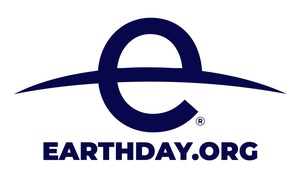EARTHDAY.ORG RELEASES REPORT BABIES VS. PLASTICS
WASHINGTON, Nov. 16, 2023 /PRNewswire/ -- EARTHDAY.ORG, the global driving force behind Earth Day and its activation by over one billion people around the world annually on April 22, today releases a damning report on the insidious nature of microplastics and their health implications on babies and children.
With over 100+ studies, reports and articles reviewed – BABIES VS. PLASTICS makes for shocking reading:
Research suggests the health implications presented by microplastics and their additive chemicals extend to children both before and after birth. There's evidence microplastics can interrupt maternal-fetal communication and potentially damage DNA. Some studies report finding links between microplastics and attention deficit hyperactivity disorder (ADHD). Reports have linked microplastics to autism and other endocrine disruption issues which can (amongst other things) manifest as early onset puberty. As well as association with some cancers, including in the prostate gland of fetuses.
There are over 20 different basic types of synthetic plastic, all of them are made with petrochemicals and varying combinations of over 10,000 different chemicals. Practically everything we use in the modern world has some component made of plastics. From furniture to microbeads found in toiletries, tires, single-use water bottles, medical equipment, vitamin capsules and beyond. Even our clothes contain plastics. It is virtually impossible to opt out of encountering plastics or microplastics.
Evidence (from a pilot study) suggests babies, more than any other demographic group, might be more susceptible to ingesting microplastics. Researchers discovered that median levels of some microplastics were over 10 times higher in baby feces than in that of adults. Is it surprising given their toys, clothes, cribs, playgrounds, even breast milk, can all contain, leach, or shed microplastics?
In addition, babies have two key developmental stages, both of which appear to play a pivotal role in the higher levels of microplastics that early research is discovering in their feces. Babies taste test their world, which often mean chewing on plastics. Babies also crawl on the ground potentially encountering household dust that contains microplastics.
Babies and infants appear to be inhaling and ingesting microplastic particles at nearly every stage of their development. Which is why EARTHDAY.ORG is calling for the United Nations Environmental Programme (UNEP) to formally recognize the health implications of exposure to microplastics, plastics, and their additive chemicals in the Global Plastic Treaty - alongside a 60% reduction in plastic production by 2040 - for the good of our children's health.
ABOUT EARTHDAY.ORG: Our mission is to diversify, educate, and activate the environmental movement worldwide. EARTHDAY.ORG is the world's largest recruiter to the environmental movement, working with more than 150,000 partners in nearly 192 countries to build environmental democracy. Over 1 billion people participate in Earth Day activities each year, making it the largest civic observance in the world. To learn more, please visit: EARTHDAY.ORG
EARTHDAY.ORG MEDIA CONTACT
Sarah T Davies
Director Media & Communications
[email protected]
Cell: 240 463 1341






Share this article